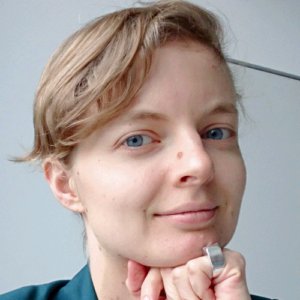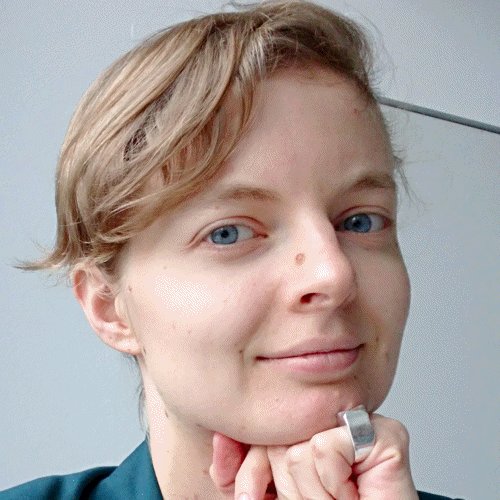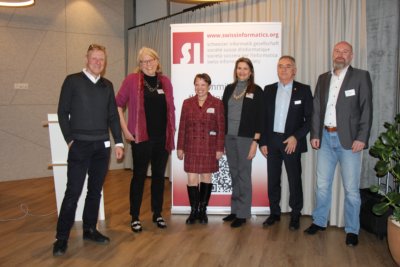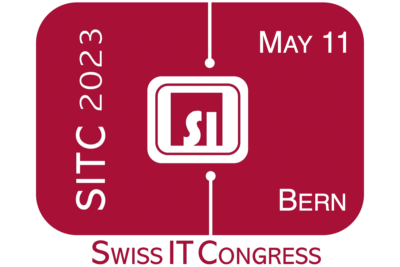. |
Nataliia StulovaSenior Researcher, Software Composition Group, University of BernBorn: 1991 “The question to ask yourself is not if you can do it, the question is how you do it.” Education/career: Fully academic career, with BSc in Systems Analysis (Ukraine) followed by MSc in Artificial Intelligence (Spain) followed by PhD in Software, Systems and Computing (Spain), and after a one-year postdoc at EPFL (Switzerland) I am in my second postdoc at UniBern. |
How did you get into the IT industry?
What was your first encounter with IT? When, how and why did you catch fire then?
When I was preparing for entrance exams to my high school and was taking evening classes in, let’s call it “computer literacy”: electronic document editing, working with spreadsheets and databases, creating presentations, and getting the basics of web design. It was something new to learn, and for a third generation engineer I guess it was the natural course of events to get excited about the new technology.
How old were you at that time?
14
How old were you when it became serious and you had to decide on an apprenticeship or a field of study, respectively?
I was 16, one year before finishing high school, when I was choosing which universities and programs to apply to.
What alternative professions or fields of study were you also interested in at the time?
At that time my top two subjects were languages and mathematics, I was not enjoying programming per se, though computers kept me fascinated with all the possibilities they offered, be it communication (chats, ICQ and XMPP-based instant messaging), creating digital art, entertainment and so on. So, at some point it was a choice between humanities and STEM, and the combination of interest in mathematics and computers won, leading me to apply for a BSc program in essentially applied mathematics. Ironically, of the two possible specialisations it offered I chose the one with less programming courses.
What information did you have at that time about education and the opportunities afterwards?
I went to several “open doors” events in the university I wanted to get accepted into, where the prospective students like me got to know some of the lecturers and were given the full descriptions of the BSc programs and possible future professions they gave access to. It allowed me to judge how my current skill set would evolve and how much intersection there was between what I already liked doing and what was in the curriculum.
What spoke against it from your point of view at the time?
Not much, I did not see myself as a professional writer or translator back at the time, so giving less priority in developing my linguistic skills was fine with me. Neither did I have big ambitions in digital art or web design, my other big interest back at the time.
Who, which people, which circumstances spoke against a career in IT for you at that time?
My paternal grandmother, a surgeon, was very disappointed I did not go into medical school to follow her footsteps, but even she had to agree with me that enrolling into a program I was neither interested in nor good at would not make a successful career start. My father was not happy I was moving to a different city and was going to live “all by myself in a dorm room with strangers”, but while leaving the comfort zone of the parent house was scary (and leaving the then-boyfriend was heart-breaking), I was also yearning for it and for my own independent future. I ended up commuting every other weekend back to my home city to see family and friends for the better part of my university studies, but apart from this compromise I was adamant about my choice.
What was ultimately decisive for your decision to go into IT?
I was genuinely interested in it, and I was good at it. I was ready to risk and see where it takes me, even if it was not a career path of anybody in the family.
Who, which persons, supported you at that time?
Part of my family was the first support circle, my mother and my maternal grandmother were very supportive both of my choice of studies and of me moving to a different city. Even my paternal grandmother eventually accepted my choice and actually gifted me my first laptop, which simplified a lot of things for me during my studies and allowed me to be as mobile as I needed.
What was your path after your apprenticeship or studies?
What were your first steps after graduation?
Keep studying and go for a MSc and a PhD.
Where were you in your career five years after the end of your training/studies?
• Professionally
5 years after my BSc graduation I was enrolled in a PhD program, 5 years after my MSc graduation I was defending my PhD, and it has only been 3 years since my PhD defence – academic careers are that long.
• Private situation
I’ve changed the country of residence several times, travelled a lot for work, but I keep not getting enough time to see my closest circle outside the Skype/Zoom windows. Still live a life of a foreigner, still very mobile, following work wherever it takes me. It is also a lifestyle that requires a lot of effort to maintain a few personal connections that survive long distances.
Did you have
a) The same salary as your male colleagues?
b) The same career opportunities? If no, why not?
I was lucky enough to work in environments where people are paid the same salary for equal position regardless of their sex. For academic positions on the level of postdoctoral researcher I have also not seen any difference in career opportunities.
Still, there was this situations at work with my male colleague, that keeps me uneasy until today. I was replacing him as he was transferring to a different university, and it was just the beginning of the first covid lockdown, so a lot of things were on hold. He had to stay for a few extra months, but I was already employed, so we technically shared the same position for some time. Since our group did not have enough budget for two people in this position both our salaries were reduced, but his to 80% and mine to 50%. There were, as usual, multiple factors that had led to this situation, and the whole pandemic situation was exceptional, but 30% difference is 30% difference.
Looking back, how do you assess the decision for IT?
Which of your expectations were met?
I got a technical profession that allows me to keep up with technological progress fairly well.
What do you enjoy most about your current professional situation?
Work hours and work location flexibility, and that both my hard and soft skills are getting used on a daily basis – it is not all about technical knowledge, oftentimes managing other people is just as much contributing to project success.
Which of your expectations were not met?
Work-life balance is often a nightmare. Overall work culture is not that much about quality, but about speed of product delivery– which is disheartening and not sustainable. And the pronounced gender imbalance does improves neither the work environment nor its practices.
Would you make the same decision again?
Yes
What do you regret or criticise?
I should not have done a PhD (at least immediately after a MSc) and instead gone to a more applied job after my master’s studies.
How had your career been different if you were a man?
It is not as if until the point in time when I was choosing my profession I was getting the same treatment as my male peers. Gender-based socialisation starts almost from birth. Kind of toys you are given. Behaviours and personality traits for which you are rewarded or punished are different. Hobbies offered. The list goes on, it is still systemic. To quote Simone de Beauvoir, “One is not born, but rather becomes a woman”. As a result, as a woman you have not only to be competitive against your peers, but also against all that debilitating upbringing.
Family attitude would have been different. I would have had more colleagues of the same sex, feeling less of an alien at professional events and daily workflow. I would have never been considered a “diversity participant”.
What would you do differently, and how exactly, if you could?
I would have done more networking and participated more in risky projects.
If you had a magic wand, what would you wish for?
People making more conscious and responsible choices in their life.
What advice would you give to your daughter?
What advice would you give to your 15-year-old daughter if she would like to go into IT?
To only do it if she is genuinely interested in the profession, and not in salary levels or “coolness”, or status.
What is important to you in life from a professional point of view?
To be very clear about what, why and how I want something to be done, especially when other people are involved. A lot of IT is about specifications – be it between humans, or humans and machines.
What would a young woman retiring in 2061 have to consider when shaping her career?
If we are talking about a career in IT, this woman would need to consider finding a work-life balance that would minimise the risk of professional burnout within the first 10 years. Usually it is framed as “you need to have something else” – something, that is important for you, but not work-wise, for those days when at work nothing works, so to say. Developing a network of professional contacts is the second priority. And a third one, if she really wants to last that long in the profession, is keeping working only on things that are genuinely interesting.










